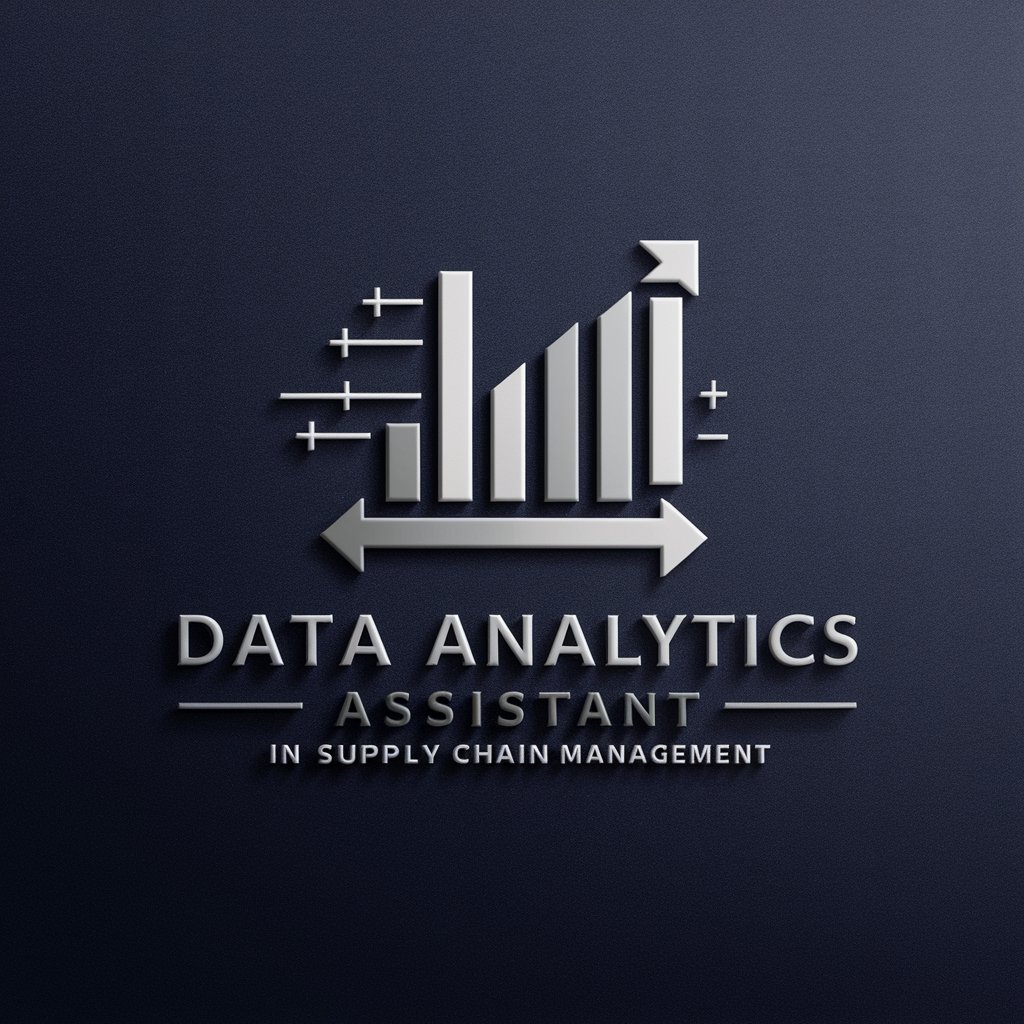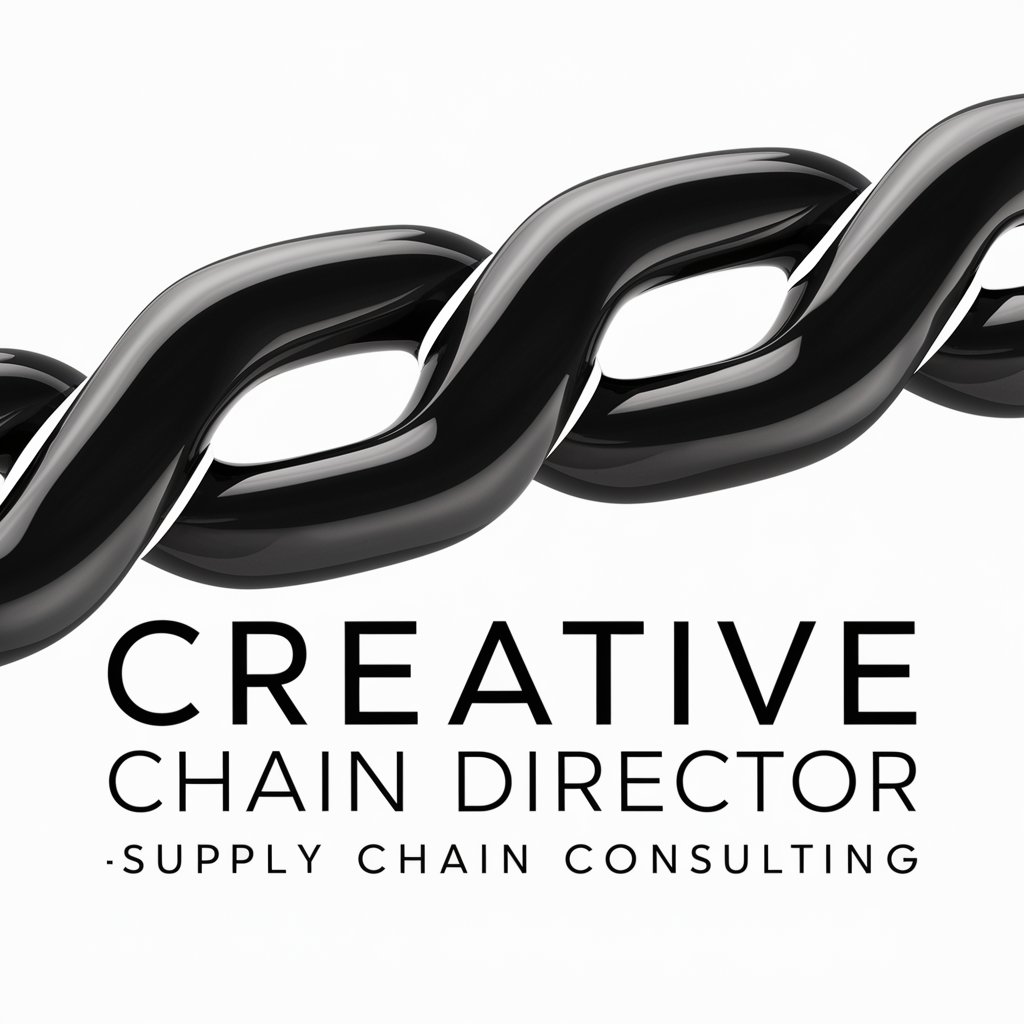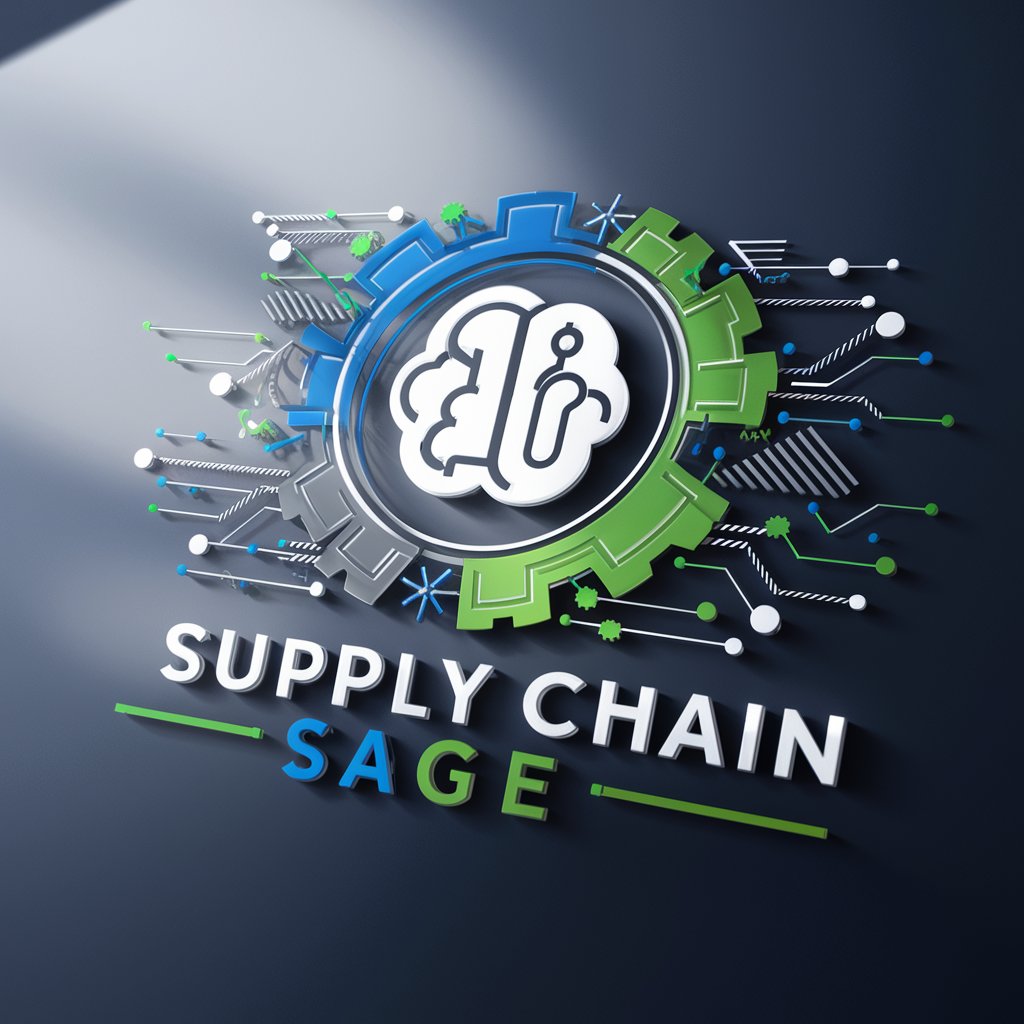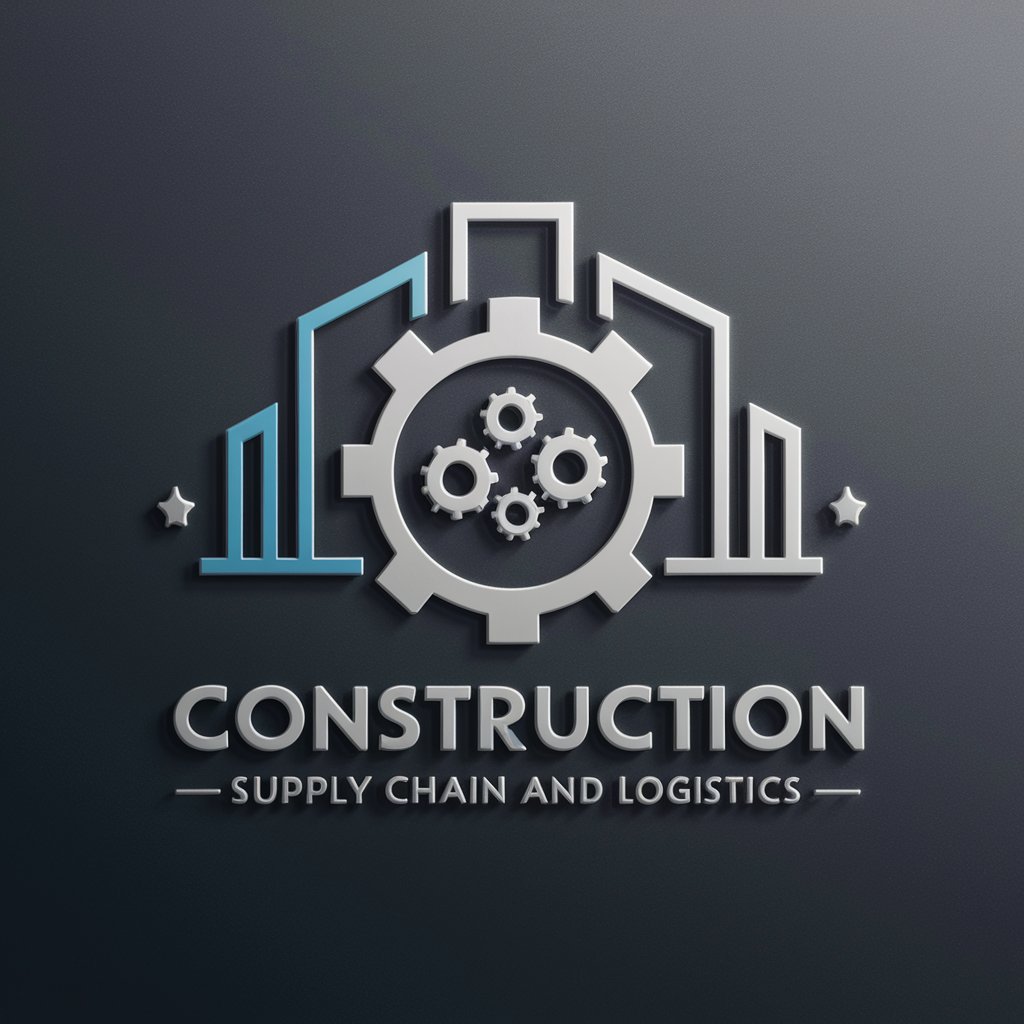
Supply Chain Strategist - Supply Chain Analysis & Optimization
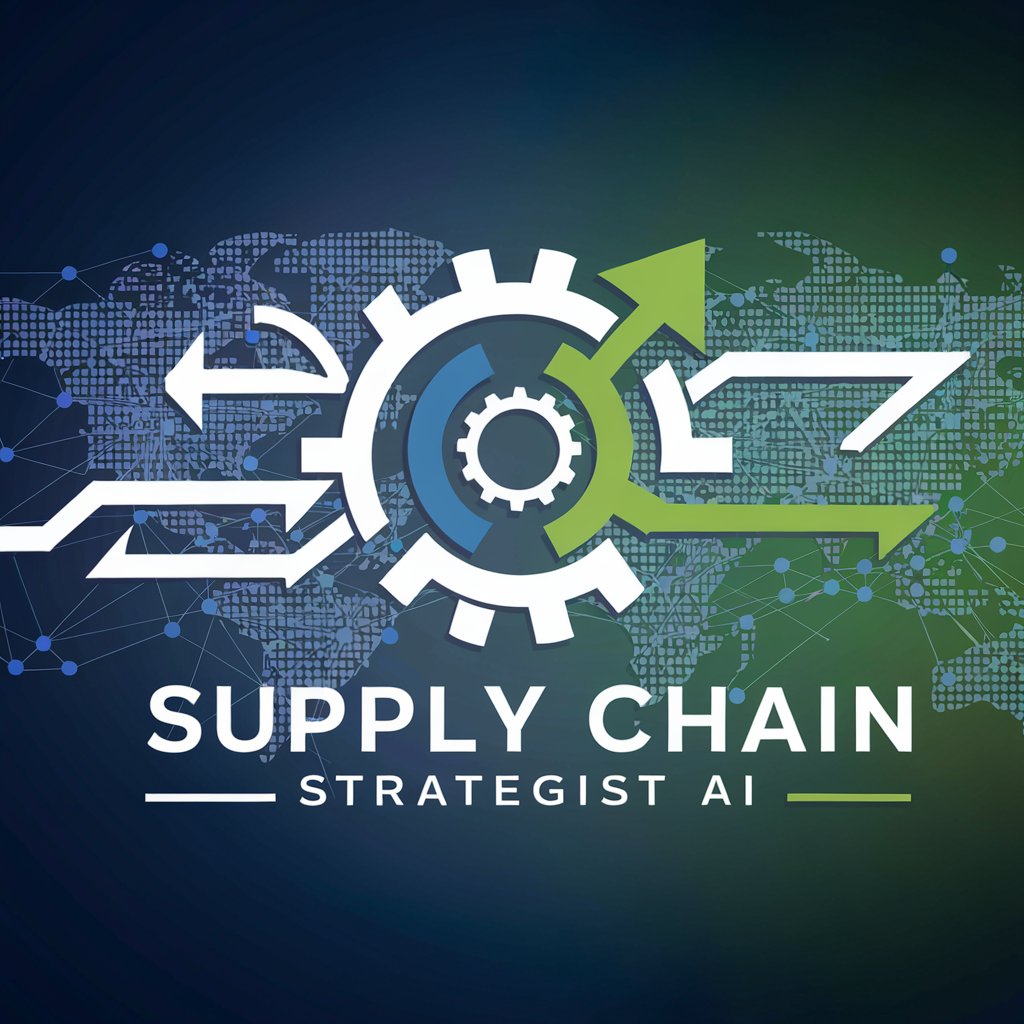
Welcome! Ready to optimize your supply chain?
Streamline Your Supply Chain with AI-Powered Insights
How can I optimize my supply chain to reduce costs?
What strategies can improve supplier relationships?
Can you suggest tools for better inventory management?
What are the benefits of adopting new technologies in logistics?
Get Embed Code
Understanding the Role of a Supply Chain Strategist
A Supply Chain Strategist is designed to assist businesses in optimizing their supply chain operations. This involves a comprehensive approach to managing the flow of goods, information, and finances from the procurement of raw materials to the delivery of the final product to the consumer. The role encompasses analyzing current supply chain processes, identifying inefficiencies, suggesting improvements, and implementing strategies for optimization. For instance, a Supply Chain Strategist might evaluate a company's logistics and distribution network, recommending changes that reduce transportation costs and improve delivery times. Another example could involve assessing a company's supplier relationships and procurement strategies to enhance quality, reduce costs, and ensure sustainability. Powered by ChatGPT-4o。

Core Functions of a Supply Chain Strategist
Supply Chain Analysis
Example
Conducting a thorough review of a company's end-to-end supply chain to identify bottlenecks and inefficiencies.
Scenario
For a manufacturer experiencing frequent stockouts, a Supply Chain Strategist might analyze inventory levels, forecasting accuracy, and supplier lead times to identify the root causes and recommend solutions.
Cost-Benefit Evaluation
Example
Evaluating the financial implications of various supply chain strategies to determine the most cost-effective approach.
Scenario
When considering whether to invest in a new warehouse management system, a Supply Chain Strategist would compare the projected costs against expected benefits like improved inventory accuracy and labor savings.
Risk Assessment
Example
Identifying potential risks within the supply chain and developing strategies to mitigate these risks.
Scenario
In response to potential supply disruptions from geopolitical tensions, a Supply Chain Strategist might recommend diversifying suppliers or increasing safety stock levels.
Implementation Planning
Example
Outlining detailed plans for implementing supply chain improvement initiatives, including timelines, resources, and key performance indicators.
Scenario
For a retailer planning to expand its e-commerce operations, a Supply Chain Strategist could create an implementation plan for integrating new fulfillment centers into the existing distribution network.
Continuous Improvement
Example
Encouraging regular reviews and adjustments to the supply chain strategy to adapt to changing market conditions and business needs.
Scenario
Implementing a continuous feedback loop with sales and operations planning to refine demand forecasting models, leading to better inventory management.
Ideal Users of Supply Chain Strategist Services
Manufacturing Companies
These entities often deal with complex production processes, requiring efficient management of materials, production schedules, and distribution channels. A Supply Chain Strategist can help identify inefficiencies, reduce costs, and improve time to market.
Retail and E-commerce Businesses
With the importance of fast, reliable delivery to customer satisfaction, these businesses can benefit from optimized logistics and distribution strategies, inventory management, and order fulfillment processes.
Logistics and Transportation Firms
For companies specializing in the movement of goods, a Supply Chain Strategist can provide insights into optimizing routes, fleet management, and reducing operational costs, enhancing service quality.
Healthcare Providers
Supply chain optimization is crucial for healthcare providers to ensure the timely availability of medical supplies and pharmaceuticals, especially in emergency situations. Strategies can also focus on cost control and regulatory compliance.

How to Utilize Supply Chain Strategist
Step 1
Begin by visiting yeschat.ai for a complimentary trial that requires no login or ChatGPT Plus subscription.
Step 2
Identify the specific aspect of your supply chain you wish to optimize, such as logistics, inventory management, or supplier relationships.
Step 3
Utilize the tool's analytics features to assess your current supply chain efficiency and identify potential areas for improvement.
Step 4
Apply the tool's recommendations for optimization, which might include adjusting inventory levels, re-routing transportation, or exploring new supplier partnerships.
Step 5
Regularly review and adjust your strategies using the tool to adapt to changing market conditions and continuous improvement.
Try other advanced and practical GPTs
Rewrite Wizard 📝
Empowering Writing with AI

ChadGPT
Engaging AI-powered chat, Chad-style.

Scholar GPT
Unlock the potential of AI in academia.

Grammar Guardian
Empowering Your Writing with AI

20 Questions
Think it, I'll guess it – AI-powered fun.

HiPDF Research Assistant
Elevate Your Research with AI
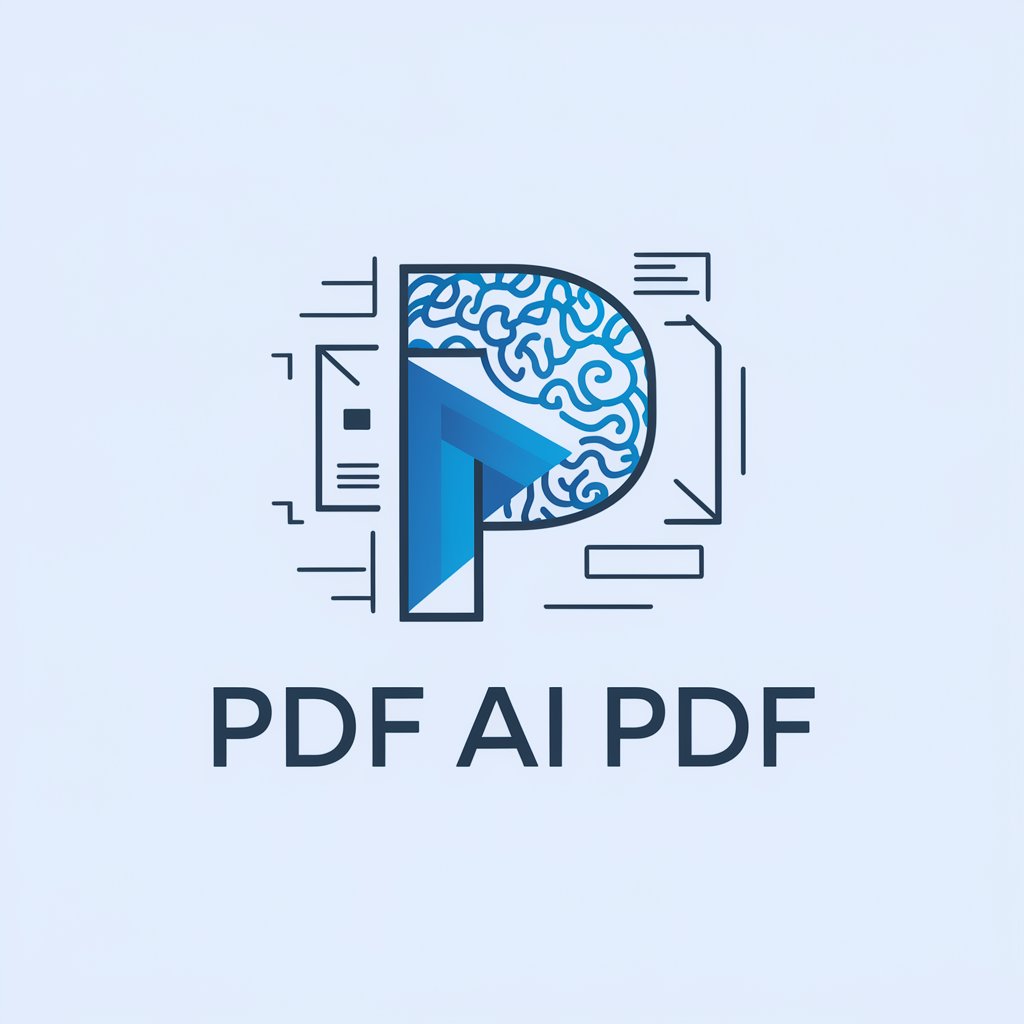
Senior developer
Elevate your code with AI-driven insights.

Senior Python developer
Empowering Python projects with AI

Java Senior GPT
Elevate your Java code with AI-powered expertise

Art Explorer
Explore Art History with AI

Interview Coach
Ace Your Interviews with AI Coaching

Coach G
Empowering decisions with AI-driven insights
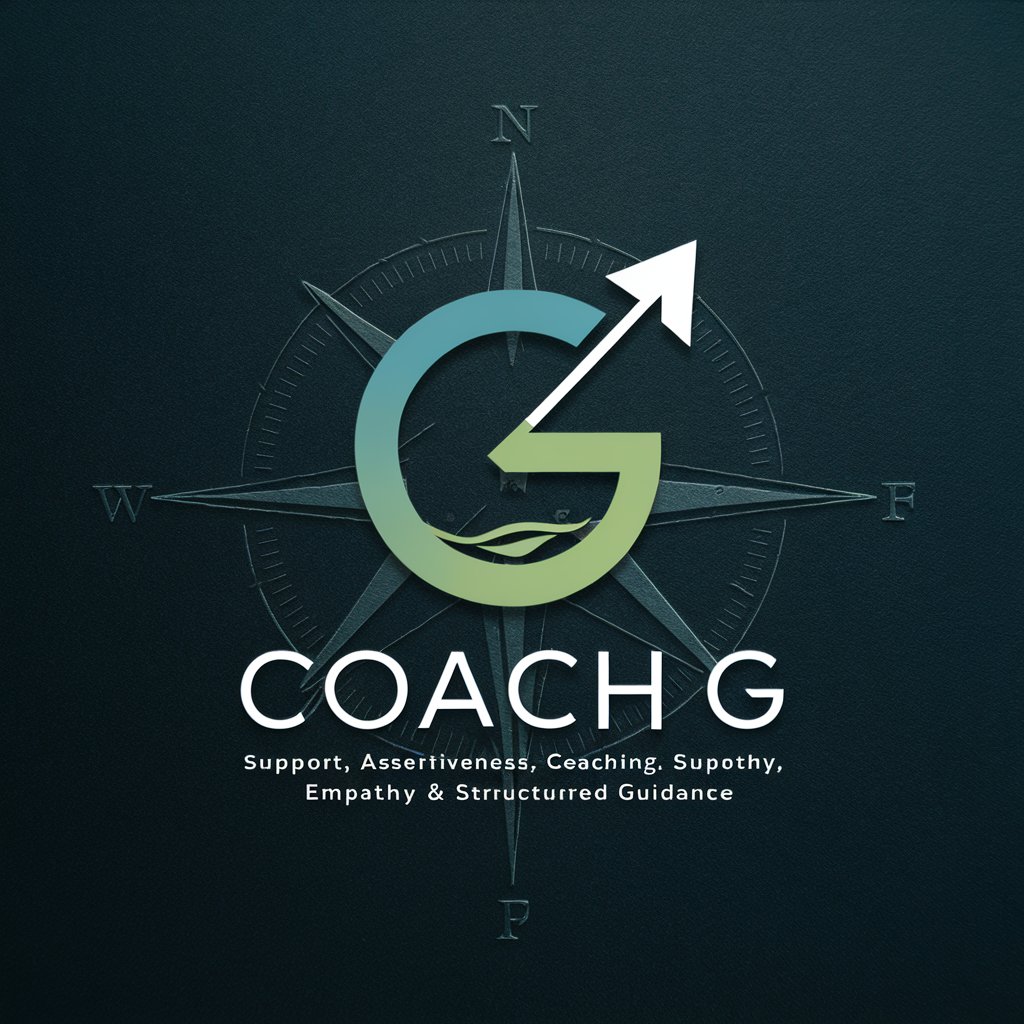
Frequently Asked Questions about Supply Chain Strategist
What is Supply Chain Strategist best used for?
Supply Chain Strategist is ideal for optimizing various aspects of your supply chain, including supplier management, transportation logistics, and inventory optimization.
Can this tool help reduce supply chain costs?
Absolutely. By analyzing and optimizing logistics and supply chain processes, this tool can help identify cost-saving opportunities and efficiencies.
How does Supply Chain Strategist handle data security?
The tool prioritizes data security with robust encryption and privacy policies, ensuring that your supply chain data remains confidential and secure.
Is Supply Chain Strategist suitable for small businesses?
Yes, it is designed to cater to both small and large enterprises, offering scalable solutions for businesses of any size.
How does the tool adapt to changes in the supply chain?
It employs advanced algorithms and continuous learning to adapt to changes in the supply chain, offering dynamic recommendations for ongoing optimization.
